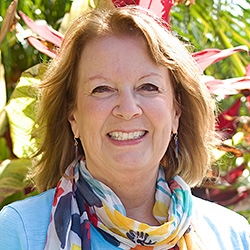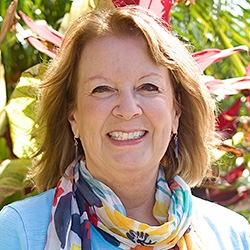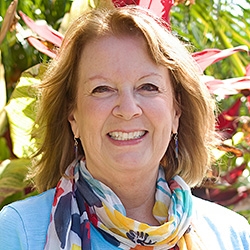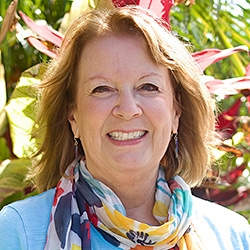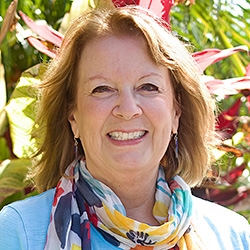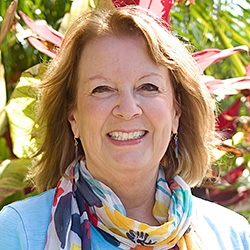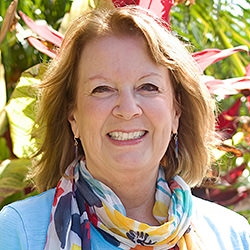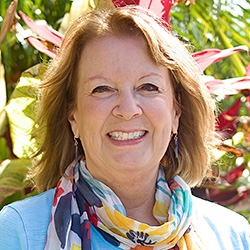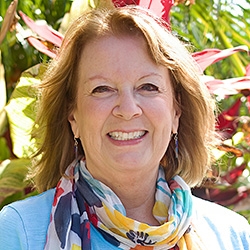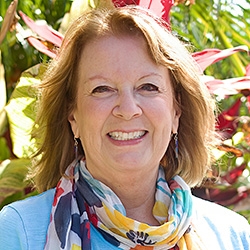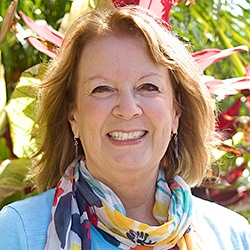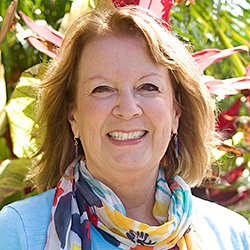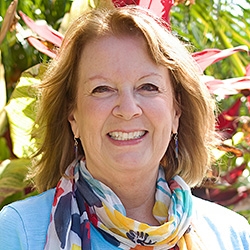

Search Results: thinking
-
Miki works with a course participant to transform begrudging attendance at a mandatory meeting into the possibility for collaboration, more connection where little is expected and focus on clarity of purpose for meeting in the first place.
-
Trainer Tip: Ready to start a fight because you're right? Consider another strategy.
-
Trainer Tip: Taking time to mourn our regrets and unmet needs can lead to a deeper self-connection and feelings of peace.
-
Trainer Tip: Q: How do we get the love we want? A: Ask for it.
-
Trainer Tip: Mary shares an experience about accepting responsibility for her actions and how that lead her to greater choice and freedom.
-
Trainer Tip: The needs we focus on meeting and the strategies we use to meet those needs change over time. Mary shares about the life-serving nature of change.
-
Trainer Tip: Find ways to celebrate each day and enrich your life.
-
Last year, I planted my vegetable garden in February. It was an enormous amount of work to get it ready. This year, we decided to move the garden farther away from trees (to avoid the ongoing tree root issue and allow more sun). So, we created 4 new beds. Now, they are ready to be planted, and yet… forward momentum has stalled.
-
Eric explains how we can often avoid regret by getting empathy before making important decisions.
-
Conflict is a normal and natural part of life. To varying degrees, it happens whenever two or more people consistently spend time together. Resolving conflict effectively and peacefully, in a way in which all parties feel respected and valued, does not feel natural for those of us who grew up with punitive, adversarial, or avoidant approaches to conflict. Eric offers some tips for approaching conflict.
-
Trainer Tip: There are many ways to meet a need. Open to new possibilities.
-
Trainer Tip: The change you're looking for begins with a single step.
-
Bridget Belgrave visually demonstrates core NVC principles with needs at the center of the process.
-
Trainer Tip: Have you ever noticed that some of your behaviors ensure that your needs for peace and relief won’t be met? Take judgments for instance. The more we have, the less peaceful and happy we feel.
-
Trainer Tip: Every single time you say or do something, even when you experience pain or regret, you are trying to meet a need. Forgiveness begins when we acknowledge the needs we were trying to meet in the situation.
-
Eric offers us a list of some of his favorite books, articles, and videos related to building successful relationships.
-
Getting "feel good" empathy can become an addiction. Even to the point of seeing people who don't offer empathy as "not being NVC". Rachelle urges us to notice how this view of NVC can be seductive, and even dangerous. In this article, she explains how we can expand our compassionate awareness when we go beyond equating NVC with harmony and empathy. She asks us to become more open to noticing others' experiences even if it challenges our personal and collective belief systems -- and especially when it upsets us to consider it.
-
What would the world be like if there was flow between all of us based on "mutual giving from the heart"? Using examples, this article offers models for us to follow that could inspire us to treat our NVC practice as one of compassionate giving and receiving.
-
Trainer Tip: Where do you focus most of your life? Are there areas that you could reassess? Are you happy? Engage a new paradigm shift in your life.
-
Trainer Tip: When we love a child there's a contribution we can provide in helping them go their own way successfully, in big ways and small.

Quick Links
Subscription Preferences
Stay In Touch!
Looking for ways to keep up with NVC Academy news, get special offers, free resources, or words of inspiration? Here are five ways to stay engaged:


